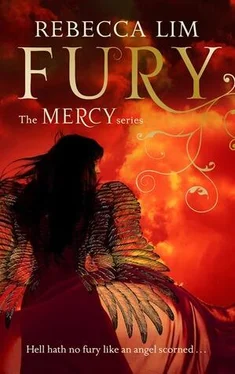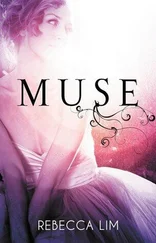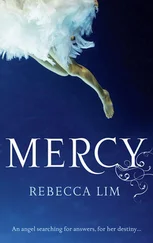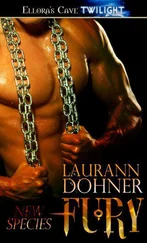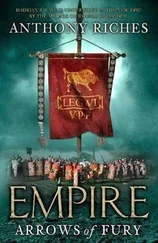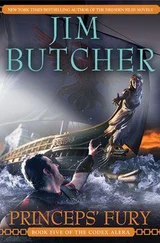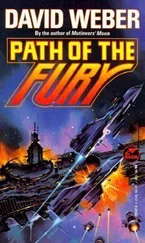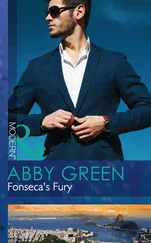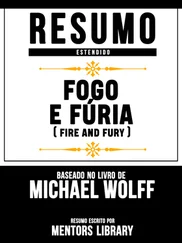Rebecca Lim - Fury
Здесь есть возможность читать онлайн «Rebecca Lim - Fury» — ознакомительный отрывок электронной книги совершенно бесплатно, а после прочтения отрывка купить полную версию. В некоторых случаях можно слушать аудио, скачать через торрент в формате fb2 и присутствует краткое содержание. Жанр: Фэнтези, Фантастические любовные романы, на английском языке. Описание произведения, (предисловие) а так же отзывы посетителей доступны на портале библиотеки ЛибКат.
- Название:Fury
- Автор:
- Жанр:
- Год:неизвестен
- ISBN:нет данных
- Рейтинг книги:4 / 5. Голосов: 1
-
Избранное:Добавить в избранное
- Отзывы:
-
Ваша оценка:
- 80
- 1
- 2
- 3
- 4
- 5
Fury: краткое содержание, описание и аннотация
Предлагаем к чтению аннотацию, описание, краткое содержание или предисловие (зависит от того, что написал сам автор книги «Fury»). Если вы не нашли необходимую информацию о книге — напишите в комментариях, мы постараемся отыскать её.
Heartbreak. Vengeance. Truth. Betrayal.
Everything that has happened to Mercy over millennia has made her who she is. Now she and The Eight wage open war with Luc and his demons, and the earth is their battlefield.
Ryan’s love for Mercy is more powerful than ever, her guiding light in the hour of darkness. But the very love that sustains her, now places Ryan in mortal danger.
Two worlds collide as Mercy approaches her ultimate breathtaking choice.
Hell hath no fury like Mercy …
Fury — читать онлайн ознакомительный отрывок
Ниже представлен текст книги, разбитый по страницам. Система сохранения места последней прочитанной страницы, позволяет с удобством читать онлайн бесплатно книгу «Fury», без необходимости каждый раз заново искать на чём Вы остановились. Поставьте закладку, и сможете в любой момент перейти на страницу, на которой закончили чтение.
Интервал:
Закладка:
‘What do you think he could have meant about not looking around?’ Ryan says wonderingly as we follow the shore of the lake, the road strangely deserted. ‘I’ve never seen a place as beautiful as this, ever.’
But that pervasive smell — of smoke, of ashes — is growing stronger. And I begin to discern patches of darkness in the distant canopy; a strange, dark blot upon the handsome facade of a dusky rose-coloured villa built right up against a curve in the shoreline, far across the lake. As we enter the main street of Moltrasio — a narrow canyon of shopfronts built shoulder to shoulder in cheerful colours — the first thing that hits me is the utter desolation, followed by the realisation that it’s filled with people.
There’s a fire crew still hosing down the smoking ruins of what must once have been a wine shop, because a river of melted glass seems to flow out of it, into a car park filled with the remains of vehicles, similarly rendered down into a kind of metallic tallow. We drive without stopping past the shattered front windows of a burnt-out delicatessen; a photographer’s studio hollowed out by fire that’s missing most of its front facade; a shoe store that retains a front door but is now open to the sky. Our driver has to slow several times to navigate over or past jumbles of semi-liquefied stone and concrete, brick, steel grillework and tile; around dangerous cracks and potholes that have opened in the road.
Through the ruins move ash-covered figures, drifting as if dazed, bending to scrabble through the rubble on the ground as if they’ve misplaced something, or raising their hands to the sky, faces twisted in agony. None of them seem to engage with the uniformed emergency personnel who are struggling to shore up structures on the brink of collapse, their desperate shouts piercing the hazy air.
Moltrasio was only partially destroyed, Juliana said. This scene must be amplified in town after town all along the lake from here to Domaso. I clench my left fist, feeling that old agony rising in me.
‘What is that?’ Ryan’s voice cuts across my thoughts.
He draws my attention to a shadowy stencil on a honey-coloured shopfront wall just ahead. It’s a weird kind of graffiti — like the rough outline of a man drawn freehand in a faint, powdery, black substance, like charcoal.
Beside the strange image stands a tall man, bald-headed, slack-faced, his suit, skin, eyes and hair covered in a thick grey dust, no hint of colour about him, not even a rim of pink around the eyes. He might be made from ash — even the whites of his eyes seem ashy. He raises both arms towards me, palms upward, as we pass him in our car, as if pleading for help. And that’s when I see it. The shape of him. The shape of the shadowy stencil rendered on that shopfront wall.
‘Did you see him?’ I whisper to Ryan. ‘The streets are filled with people just like him.’
I turn and kneel up on my seat to look out the rear window at the man standing by the wall, as if anchored there by his pain. His eyes follow our car in numb supplication. I point him out to Ryan, who is kneeling on his seat, too, scanning the war zone we’re leaving behind us.
‘What people?’ he asks. ‘All I can see are search crews. But it doesn’t look like there’s anyone left alive to find out there.’
And then horror seizes me fully and I understand what that man is. What all those drifting, dazed and voiceless people are, so divorced from all the frantic activity around them. They are those that Azraeil had no use for, those who were not blameless. And that mark on the wall? It was the agony of one man’s passing, caught there in his own life’s blood.
It’s a ghost town , I think, sickened. As it was in Hiroshima, as it was in Nagasaki.
And it is Luc’s doing, all of it.
I will bring you down , I hear him say again in that dark and smoky voice that used to play havoc with every sense I possess. Believe it.
7
The back wheels of our limo grind and scream uselessly, unable to get traction as the driver crunches the gears, trying to accelerate out of a giant pothole within sight of the towering gates that guard Villa Nicolin.
Our police escort salutes us from his motorbike and roars away.
I pop the lock on my door and tug on Ryan’s hand. ‘Come on,’ I say, jumping out of the shuddering limo, the elegant dresses upon their padded hangers hooked over the fingers of one hand.
The pothole looks recent. When I stare at its clean edges, I imagine that I see the faintest trace of phosphorescence, of melted, cauterised earth. Nuriel must have fought Luc so badly.
Ryan shoulders the daypack and we walk up to black wrought-iron gates. They are at least twenty feet high and set into the centre of a towering stone facade built to resemble the entry to a medieval keep. Dusk is falling, and as we draw closer, automatic sensors flood the area immediately around us with a dazzling light. Four sleek, fine-boned shapes materialise out of nowhere and throw themselves at the gates, thrusting their muzzles at us through the bars, teeth snapping, foaming and yowling.
Ryan yells, ‘Holy crap!’ and leaps backwards, but I remain where I am, watching the light strike the glistening, bared fangs only inches from my fingers.
‘Italian greyhounds,’ I say absently as I turn and press the buzzer on the intercom panel set into the gate. There is no nameplate on it, no address.
A faint metallic chiming sound comes back at us from the built-in speaker. The camera lens that’s set into the centre of the panel swivels minutely in my direction. From the corner of my eye, I see Ryan slip on the fake spectacles, adjust the cap on his head so that it sits low over his eyes.
The intercom speaker suddenly crackles into life. ‘Business?’ a woman’s voice says pleasantly. I place the accent a second later as Irish.
‘Juliana Agnelli-Re sent us with the gowns for Miss St Alban,’ I say smoothly, holding the dresses up in front of the lens.
Ryan and I turn as, with a squeal of tyres, the limo shoots out of the pothole and does a rapid U-turn before burning back the way we came. Ryan runs the fingers of his right hand through the ends of my loose hair, and I give him a stern look, twisting it back into a knot behind my neck with my free hand. It stays there.
He grins. ‘Neat trick.’
‘Focus,’ I reply repressively.
The intercom remains silent, and I look over the heads of the baying, scrabbling dogs at the estate. The wide driveway — paved in smoothly rounded, dark and light stones that mark out an intricate pattern — seems to go for a mile past gently playing fountains and manicured lawns before curving around the side of an imposing three-storey Palladian-style villa with cream-coloured walls and dozens of windows framed by forest green shutters. It’s a house with scores of rooms and chimneys, entered by way of a grand central portico supported by stone pillars. The huge carriage lamps on either side of the front door suddenly come on, as do all of the floodlights lining the driveway. Immediately, the sky seems darker, heightening the impression of Villa Nicolin being a kind of fortress against the outside world.
‘Tomaso will be right with you,’ the woman’s voice says through the speaker.
Minutes later, an olive-skinned man built along the lines of a silverback gorilla, taller even than Ryan, in a sleekly fitted three-piece suit, with short, greying hair and an earpiece, approaches the gate. He looks us up and down expressionlessly, before looking at the dogs going mad at his heels, drenched in sweat.
He drags the dogs away by their collars around the side of the house, then returns and points some kind of remote unlocking device at the gates. They swing away from us almost soundlessly, and as we enter, the man indicates wordlessly that we should submit to a search. He sets the gates closing again with the remote, before pocketing it and patting Ryan and me down individually for weapons, the touch of his hands feather light and impersonal. Beckoning for the dresses, he wrings each one lightly, then rummages through the daypack. Finally, with a jerk of his head, he indicates that we should follow him up the drive.
Читать дальшеИнтервал:
Закладка:
Похожие книги на «Fury»
Представляем Вашему вниманию похожие книги на «Fury» списком для выбора. Мы отобрали схожую по названию и смыслу литературу в надежде предоставить читателям больше вариантов отыскать новые, интересные, ещё непрочитанные произведения.
Обсуждение, отзывы о книге «Fury» и просто собственные мнения читателей. Оставьте ваши комментарии, напишите, что Вы думаете о произведении, его смысле или главных героях. Укажите что конкретно понравилось, а что нет, и почему Вы так считаете.
